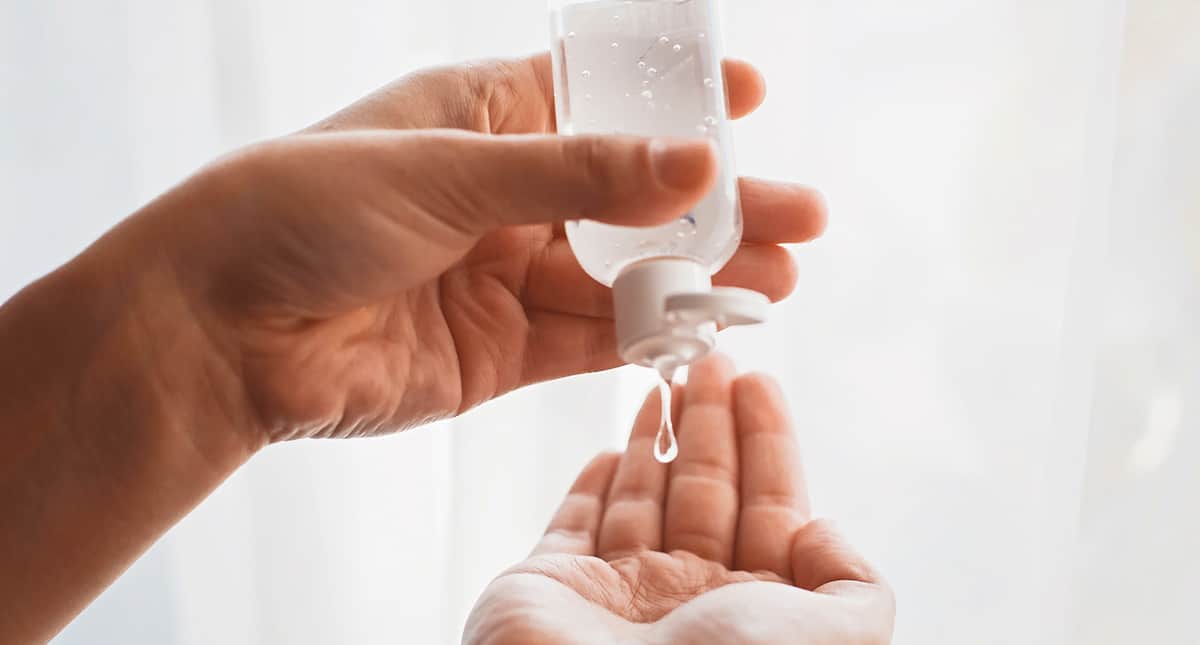
Whether in the form of cream, gel hand sanitiser or povidone-iodine, antiseptics see widespread use in first aid, medical care, and daily life to stop the spread of infection from microorganisms. While they can be very useful, there has been some question around the safety of the use of antiseptics, especially in regard to what active ingredients are in products.
With so many kinds of antiseptics available, each with different uses and advice, a general guide will be a useful tool to aid in safe antiseptic use and the delivery of effective first aid.
What is an antiseptic?

An antiseptic is a substance usually applied to the skin that helps to prevent infection by slowing the growth of potentially harmful microorganisms. They are commonly used in hospitals and other medical environments when preparing for surgery and other procedures, or to treat certain infections.
Some antiseptics are also available over-the-counter for domestic use, usually in the form of a cream or liquid to aid in first aid and wound treatment at home. While antiseptics are a good option for preventing infection at home, more serious wounds like large burns and animal bites will still require proper medical attention.
When should I use antiseptic?
Antiseptics have many uses both in medical and domestic settings — you should typically only use an antiseptic at home to clean the skin and areas around broken skin. Medical professionals also use it to clean mucous membranes like the urethra or bladder.More specific uses for antiseptic include:
- Dry hand washing: Medical professionals often use antiseptics as hand scrubs to prevent causing infections in patients.
- Cleaning the skin before a procedure: Antiseptics are used on the hands and arms before a blood draw, surgery or other procedure to kill any microorganisms that may be on the skin.
- Preventing skin infections: Over-the-counter antiseptics can be applied to the skin to reduce the risk of infection, particularly for minor burns, cuts and scrapes.
- Treating throat and mouth infections: Mouthwash and some throat lozenges contain antiseptics that can help combat a sore throat due to a bacterial infection.
- Cleaning mucous membranes: Antiseptics are used to prepare the urethra or bladder for the insertion of a catheter, reducing the risk of infection.
What's the difference between antiseptics, antibacterials, antibiotics and disinfectants?
While antiseptics have a similar role to disinfectants, antibiotics and antibacterials, they each serve slightly different purposes. To add to the confusion, these terms are sometimes used interchangeably, and antiseptics are occasionally referred to as skin disinfectants.Here are the differences explained:
Antibacterials
As their name suggests, antibacterials are effective killing or stopping the
growth of bacteria. By contrast, antiseptics are effective not only on bacteria, but also on viruses and fungi.
Antiseptics tend to be harsher on the skin, however, which is why antibacterial soap and water are recommended for cleaning many cuts and scrapes.
Antibiotics are usually prescribed by a medical professional to fight against bacterial illnesses.
Disinfectants typically contain larger concentrations of biocides like hydrogen peroxide than antiseptics, which makes them too harsh to use on the body.
Antiseptics tend to be harsher on the skin, however, which is why antibacterial soap and water are recommended for cleaning many cuts and scrapes.
Antibiotics
While antibiotics and antiseptics can both take the form of a cream or topical liquid and used to prevent the growth of bacteria on the skin or mucous membranes, antibiotics can also take the form of oral medication used to treat a variety of internal infections.Antibiotics are usually prescribed by a medical professional to fight against bacterial illnesses.
Disinfectants
While antiseptics are usually applied to the body, disinfectants are used on objects or surfaces like handrails and tabletops. For example, a surgeon would use antiseptic on a patient to clean the site before surgery and use disinfectant to sterilize the operating table.Disinfectants typically contain larger concentrations of biocides like hydrogen peroxide than antiseptics, which makes them too harsh to use on the body.
Are antiseptics safe to use?
Antiseptics are generally safe for use, but they can be potentially dangerous if used incorrectly.Strong antiseptics run the risk of causing severe irritation or even chemical burns if used on the skin without first being diluted. Weaker or diluted antiseptics can still cause irritant contact dermatitis if they are left on the skin for prolonged periods of time.
If you’re using antiseptics at home, ensure you follow all safety guidance on the packaging. Avoid using antiseptics at home for longer than one week at a time.
You should stop using antiseptic and seek advice from a medical professional if:
- The affected area is showing little to no signs of improvement or healing
- You’ve received a large wound or burn with debris that won’t wash away
- Your wound is from a human or animal bite
- You’ve injured your eye
If you have allergies of any kind, check with a medical professional before using over-the-counter antiseptics. You should never use antiseptics to treat sunburn or a deep skin infection.
Takeaway
Antiseptics are useful for cleaning the skin and mucous membranes, as they kill and prevent the growth of microorganisms such as bacteria, fungi, and viruses. While they are generally safe for use, you should avoid using them for prolonged periods of time. If you’re in doubt, consult a medical professional for advice before using over-the-counter antiseptics.Read our other blogs for more information on first aid or contact us for further advice and information on our products.
About the author:
Jo Stokes is a writer, marketer and trained first aider at First Aid Online.
Find out more about Jo.
By Jo Stokes

